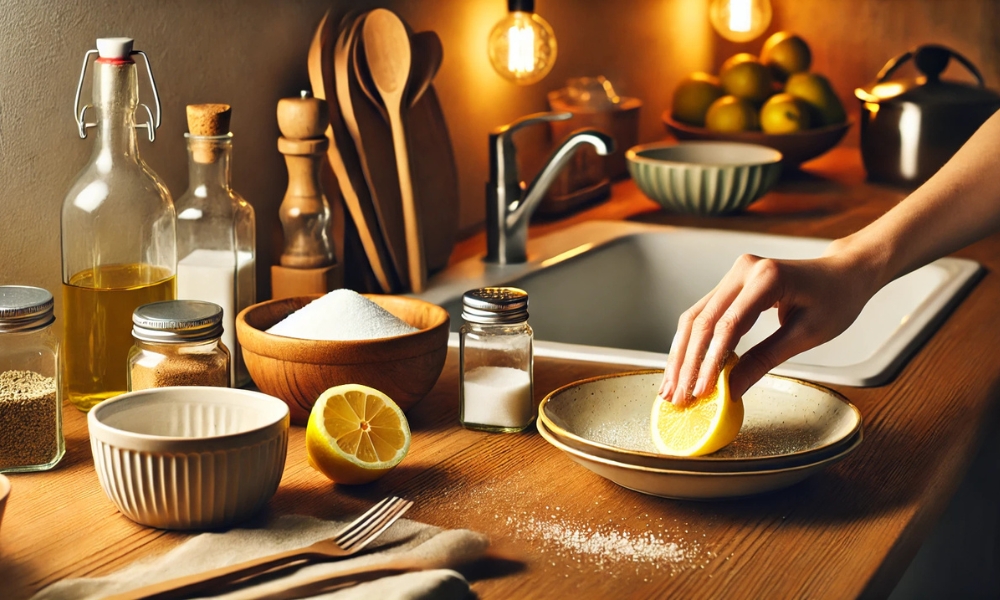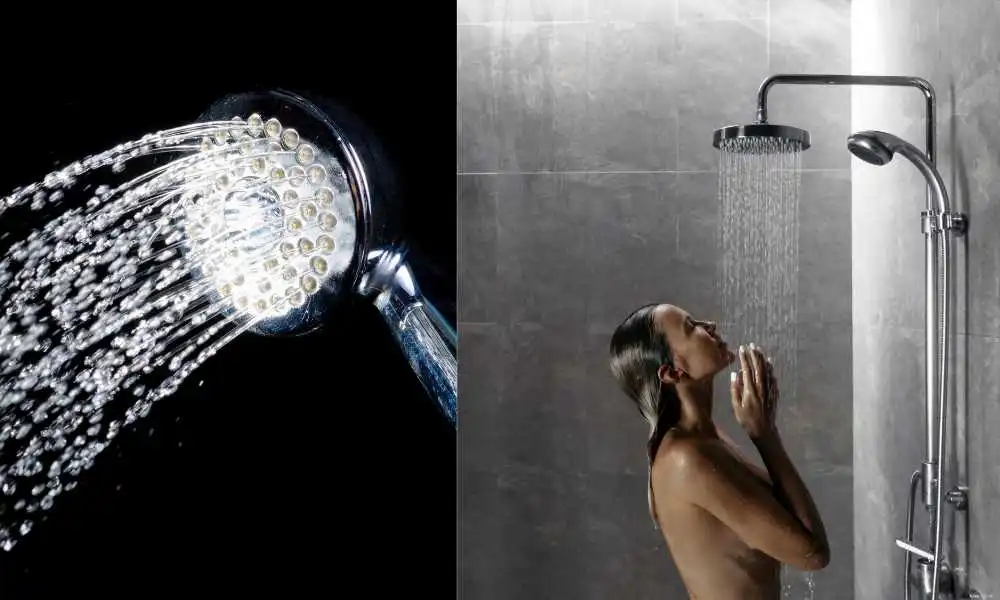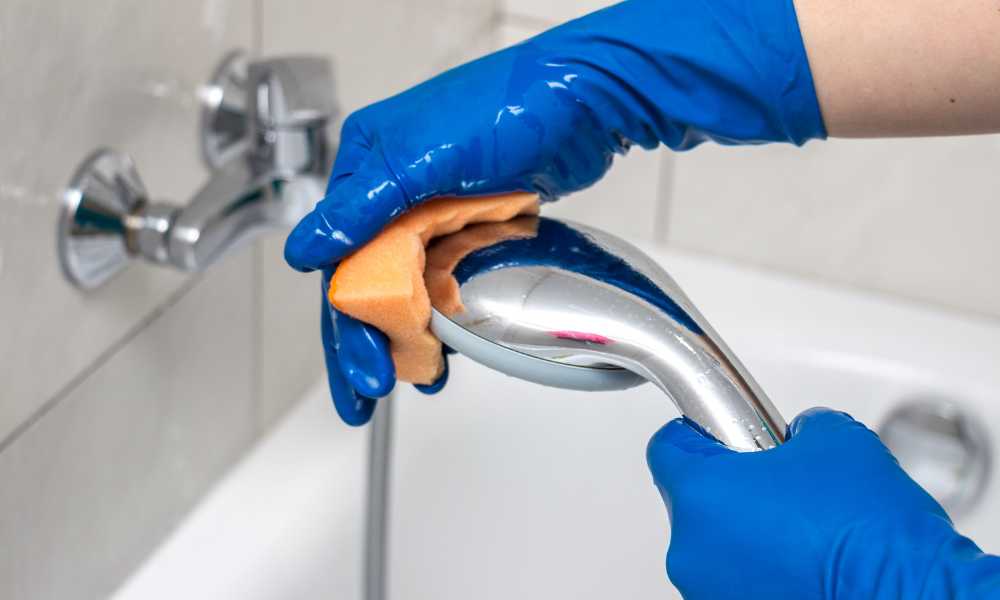There’s a peculiar kind of irritation that comes with reaching for dish soap, only to realize it’s not there. Washing dishes—a routine task we often barely think about—suddenly becomes a daunting endeavor without this familiar helper. Yet, with some common household items and a dash of inventiveness, you can achieve pristine, gleaming clean dishes without a drop of dish soap. Simple methods, accessible ingredients, and a few extra minutes transform what could be a disaster into an opportunity for resourcefulness. The strategies here, entirely natural and refreshingly easy to implement, keep your kitchenware clean, your routine eco-friendly, and your mind at ease.
The Common Problem: Running Out of Dish Soap at the Worst Time
Dish soap seems to vanish at the most inconvenient moments. Perhaps you just finished hosting guests, and the sink is stacked high, or maybe it’s a weekday evening, and a store trip feels impossible. We’ve all been there, staring at a sink of dirty dishes, with no soap to rely on. But rather than a hassle, think of this moment as a chance to learn a new approach. These alternative methods don’t just save the day; they empower you with a versatile skill for those unexpected times when soap simply isn’t an option.
Why Learning Alternative Methods for Dish Cleaning Can Be Helpful
Knowing how to clean dishes without soap goes beyond practicality. It’s a skill rooted in self-reliance and versatility, turning an inconvenience into an eco-friendly solution. Beyond convenience, alternative cleaning options are gentler on your health and the environment, reduce exposure to chemicals, and can cut costs. Shifting to natural solutions not only changes your approach to dishwashing but might even reshape your entire outlook on household care.
What You’ll Learn: Simple, Effective Ways to Clean Dishes Naturally
In this guide, you’ll discover a range of methods that make dishwashing without soap both straightforward and highly effective. From scrubbing tricks to natural degreasers, each method uses items you probably already have. With these techniques, any dish in your kitchen can emerge spotless, odor-free, and ready for the next meal.
Understanding How Soap Works and Why We Use It
Dish soap is a surfactant, a substance that breaks down oils and lifts grease, making it easy to rinse away. While it’s highly effective, it’s not the only way to get a clean surface. Natural materials like vinegar, lemon, baking soda, and even hot water can achieve similar results. These agents dissolve grime, tackle residue, and leave no chemical traces, offering a cleaner and more natural finish.
Natural Cleaning Agents You Can Use Instead of Dish Soap
1. Vinegar: The All-Natural Cleaner
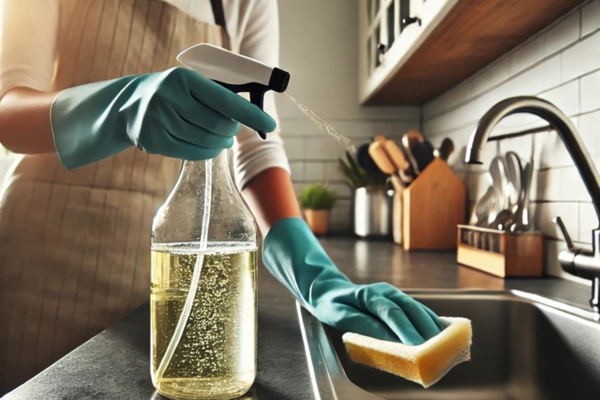
Vinegar is acidic, making it an excellent agent for dissolving oils and lifting grime. It sanitizes and breaks down grease with ease, and a simple splash can leave dishes looking clean and fresh without any soap involved.
2. Baking Soda: A Gentle, Effective Scrubber
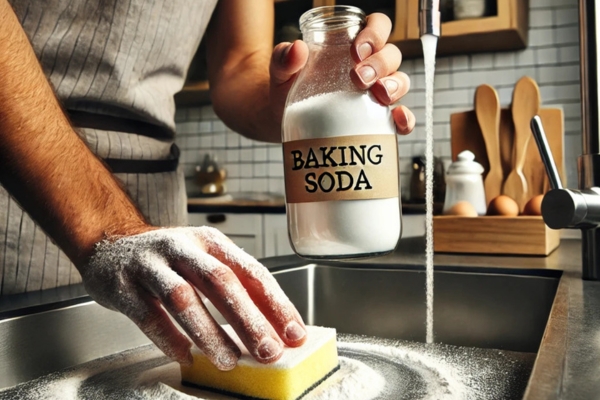
Baking soda’s mild abrasiveness is gentle yet powerful, able to remove grime without scratching delicate surfaces. Mixing it with water or vinegar creates a potent paste that tackles food particles and grease effortlessly.
3. Lemon: Nature’s Own Degreaser And Disinfectant
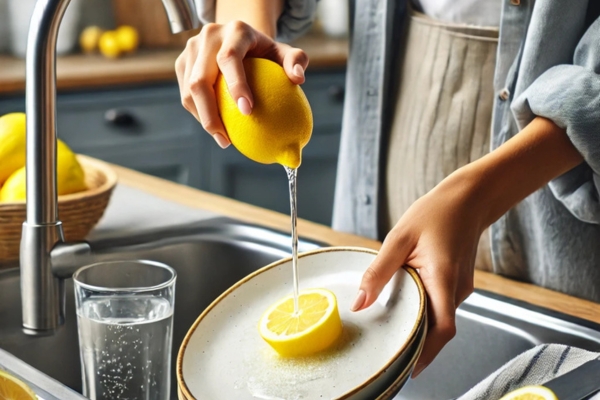
With its natural acidity, lemon cuts through grease, disinfects, and imparts a fresh scent. Its antibacterial properties leave dishes not only clean but also pleasantly fragrant, making it ideal for all types of dishware.
4. Salt: Scrubbing Power For Stubborn Stains
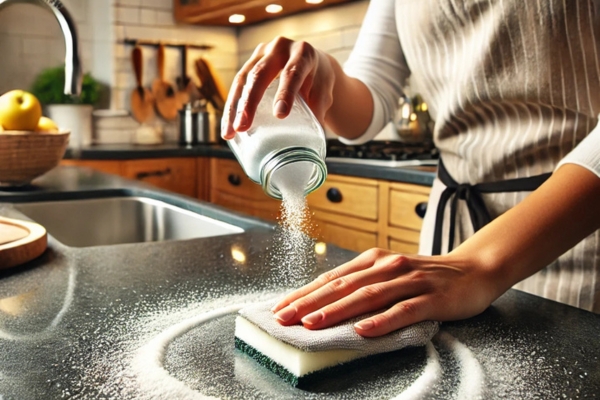
Salt’s coarse texture works as an abrasive, ideal for scrubbing off stubborn food particles and stains. Used with a natural sponge or cloth, salt easily tackles any lingering grease and grime.
Cleaning Dishes Without Dish Soap: Step-by-Step Methods
1. Using Hot Water Alone: For Lightly Soiled Dishes
Hot water loosens oils and food particles, making it remarkably effective for lightly soiled dishes. Simply rinse under water as hot as you can handle, and watch as the heat helps release residue.
2. The Vinegar And Baking Soda Method: For Greasy Or Stubborn Residue
Combine baking soda and vinegar for a natural powerhouse. Sprinkle baking soda on the dish, pour vinegar over it, and let the fizzing action lift stubborn residue. Perfect for greasy dishes, this method makes scrubbing easy.
3. Cleaning With Lemon And Salt: A Refreshing, Simple Alternative
Cut a lemon, add a sprinkle of salt, and scrub directly on the dish surface. This blend of acidity and abrasiveness cuts through grease with ease and leaves a clean, invigorating scent.
4. Sand And Ash Method: Traditional Techniques For An Eco-Friendly Clean
Sand and ash, both abrasive, have been used traditionally for cleaning. Outdoors or camping, sprinkle clean sand or ash on dishes, then scrub with a cloth. Follow with a rinse to reveal clean, residue-free dishes.
5. Using Plain Baking Soda For Non-Greasy Dishes
For non-greasy dishes, plain baking soda works well. Sprinkle it on damp dishes and gently scrub. Its mild abrasiveness cleans without the need for additional agents, leaving dishes fresh and spotless.
6. Using Salt And Vinegar For Stubborn Stains
Create a thick paste of salt and vinegar for tougher, baked-on residue. This mixture softens and lifts even the most persistent stains, making it ideal for older, caked-on food.
Natural Fiber Scrubbers You Can Use for Extra Cleaning Power
Consider natural fiber scrubbers like loofahs, coconut fibers, or wood brushes. These gentle, eco-friendly options pair well with natural cleaning agents, ensuring your dishes stay spotless without any risk of scratching.
Drying Techniques to Remove Residue Without Soap
Proper drying ensures no residue or streaks remain on your dishes. A clean towel removes any particles left behind, while air drying in a sunny spot naturally sanitizes and leaves dishes gleaming.
Special Techniques for Cleaning Different Types of Dishware
Plates and Bowls: Focus on Grease Removal
A mix of hot water and vinegar works wonders on plates and bowls. For stubborn spots, add a sprinkle of baking soda for extra power.
Glasses and Mugs: Avoiding Cloudiness and Water Spots
For glassware, vinegar and a microfiber cloth help polish without leaving streaks, ensuring a clear and sparkling finish.
Cutlery: Getting Rid of Sticky Food and Fingerprints
Baking soda effectively removes sticky residues from cutlery. After a thorough rinse and gentle scrub, a soft cloth wipe prevents water spots.
Pots and Pans: Tackling Tough Grease and Burned Residue
Burned-on residue in pots and pans requires a more intensive approach. Use a paste of baking soda and vinegar, let it sit for a few minutes, then scrub for impressive results.
Additional Tips for Effective Dish Cleaning Without Soap
Adding Essential Oils for a Pleasant Scent (Optional)
A drop or two of essential oils like lavender, lemon, or tea tree in your cleaning mixture adds a light fragrance and mild antibacterial properties.
How to Avoid Reapplying Oil or Food Residues with Your Cloth
Use a clean, absorbent cloth and rinse it often to avoid reapplying any residue. Regular rinsing ensures dishes remain spotless.
Ways to Reduce the Need for Cleaning (Less Mess, Less Work!)
Simple habits like wiping dishes before rinsing or using less oil in cooking can minimize the need for heavy-duty cleaning, making your routine faster and easier.
Safety Considerations When Using Alternative Cleaning Agents
While natural agents are generally safe, it’s wise to handle them carefully. Vinegar can irritate sensitive skin, so gloves may help. Essential oils should be stored safely, out of reach of children and pets.
Conclusion
Cleaning dishes without soap requires a bit of creativity but yields wonderfully clean, chemical-free results. These natural methods are practical and sustainable, making your dishwashing routine adaptable, eco-friendly, and surprisingly satisfying. Embrace these techniques to keep your kitchen gleaming, and the next time you find yourself get rid of soap residue on dishes, you’ll know that you’re more than prepared.
